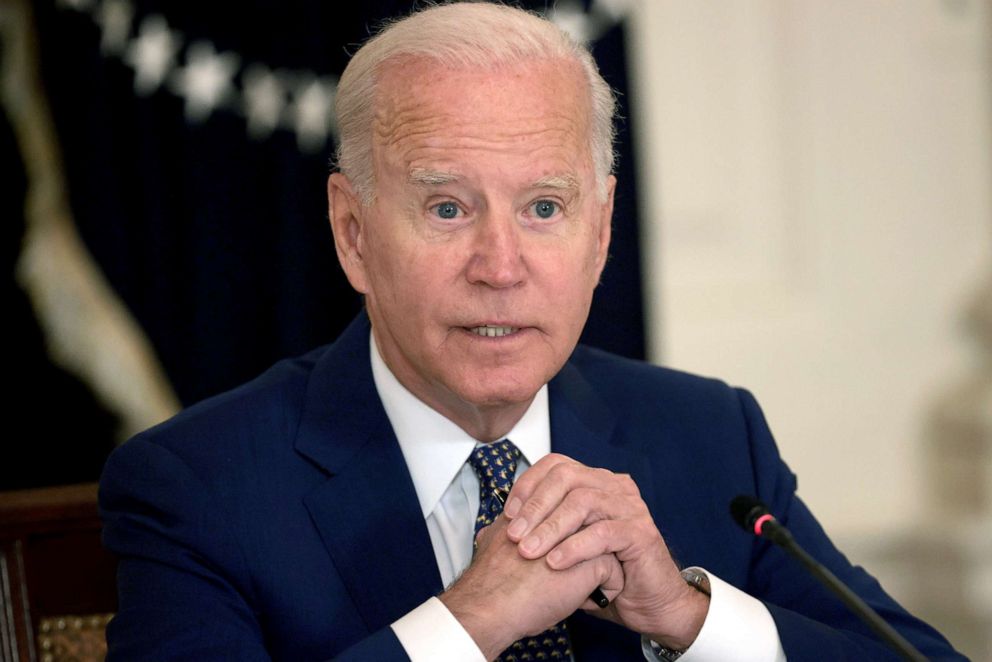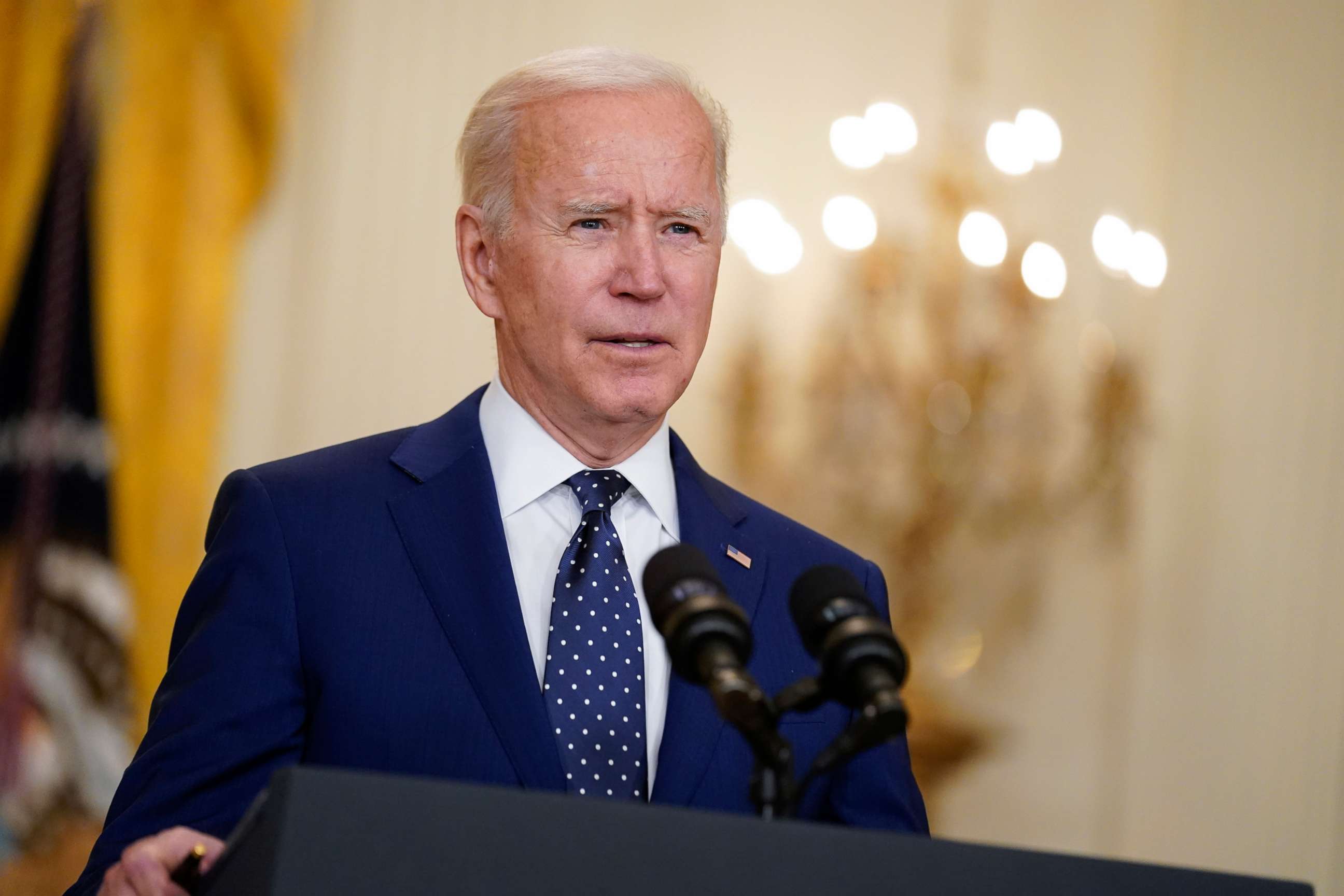Biden's 1st-year record on immigration: tough challenges, harsh criticism
Biden is on track to change more immigration rules than Trump did.
President Joe Biden has faced persistent challenges as his administration worked to reform U.S. immigration policy during his first year in office.
Some efforts over the past 12 months have succeeded in reversing hardline measures from the Trump era while other promises have stalled, generating harsh criticism from immigrant advocates.
Despite setbacks, Biden in sheer numbers has made more changes than Trump to federal immigrationpolicy with many reversals to the way the U.S. enforces immigration law.
Biden issued 296 executive actions during his first year compared to 86 in Trump’s first year and 472 over his four-year term, according to analysts from the non-partisan Migration Policy Institute.
Perhaps the most sweeping impact of the Biden presidency in immigration policy can be seen in the new approaches to interior immigration enforcement or the way Immigration and Customs Enforcement makes arrests.
Last September, ICE leadership moved to implement enforcement guidelines that once again made violent criminal offenders a top priority for deportation.
"This is a huge change in the way we approach enforcement writ large," MPI Senior Fellow Muzaffar Chishti said during a policy conference this week.
While the prior administration openly justified an enforcement crackdown as a necessary means of deterrence, Biden's security officials have ended long-term family detention and discontinued workplace raids.
Advocates decry the continued use of private ICE facilities and many have called for the end of civil immigration detention altogether.
"In the United States everyone deserves to be treated with dignity and respect," Detention Watch Network Executive Director Silky Shah said Friday. "ICE enforcement and detention is inhumane, morally and financially costly, and completely unnecessary."
Nonetheless, ICE arrests have been cut in half compared to the final year of the Trump presidency and the detained immigrant population is the lowest since 1999, according to MPI.
But at the border, it's how the administration has handled new waves of unauthorized migration where the administration has faced immense challenges and criticism from a wide range of political perspectives.

Left-leaning advocacy groups point to the continued use of the rapid deportation protocols known as "Title 42," which limits access to U.S. legal resources for unauthorized immigrants. The administration has engaged in legal battles to preserve the policy and, as recently as this week, continued the argument originally from Trump officials that the protocols are strictly a public health measure necessary to curb the global pandemic.
"It has been frustrating to all of us inside and personally to me I wish we there was more that we we -- there's more that -- much more than we need to be doing and could be doing and -- building blocks for that are also underway," outgoing White House Deputy Director for Immigration Esther Olavarria said this week.
From the right, Biden faced strong opposition this year to his attempts at rolling back Trump-era practices including the "Remain in Mexico" policy which forced tens of thousands of asylum seekers to wait for their U.S. immigration court hearings in Mexico. After the states of Texas and Missouri launched a lawsuit against the repeal of "Remain in Mexico," the Biden administration was forced to reinstate the practice while it continues an appeal.
"He completely dismantled the successful policies of the previous administration," Republican Sen. Ron Johnson, R-Wis., said at a press conference Thursday.
The year was marked with a historic level of unauthorized border crossing attempts which hit a peak of 213,000 in the month of July, according to U.S. Customs and Border Protection. More than a quarter of those encounters with immigration authorities involved repeat offenders.
The easing of enforcement measures against immigrants in the country without legal documentation, Republicans say, has signaled to prospective migrants that attempting an illegitimate asylum claim might succeed.
The need to strengthen the immigration legal process is another spoke in the wheel of challenges for Biden's immigration agenda. For migrants who avoid the "Title 42" rapid expulsion process and are directed to the typical "Title 8" route, cases are brought before an administrative judge and can take months or years to resolve. This past year, the immigration court case backlog surpassed 1.5 million for the first time, according to researchers at Syracuse University.
For those on the pathway to obtaining a green card, also known as legal permanent residency, the administration made a significant change with with reversal of the Trump administration "public charge" rule, which imposed new income and education requirements on immigrant applicants.

Biden has also sought to boost refugee admissions as well as preserve DACA -- the Obama-era policy that shields from deportation those brought to the country illegally as children. The administration was forced to draft a new rule implementing the program after a federal judge ordered all new applications halted.
On the legislative front, Biden's promise to provide a pathway to citizenship for about 10.5 million unauthorized immigrants has faced major headwinds in the Senate. Multiple attempts to get some version of the proposal included in the "Build Back Better" spending package were shot down by the Senate parliamentarian last year. And this week, Biden said the agenda items in the Build Back Better Act may need to be split up anyway to get enough support.
Politically, views of Biden's approach to immigration have dragged down his overall approval ratings over the past year. A Gallup poll released last November found just 31 percent of Americans approve of his handling of immigration issues.




